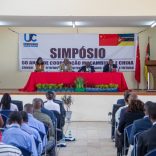Mozambique: Pension fund deposits in banks fell 75% in one year
Omissions and under-invoicing drains international reserves, alerts Bank of Mozambique

In file Club of Mozambique / Bank of Mozambique in Maputo.
The Bank of Mozambique (BM) says that omissions and under-invoicing in foreign trade transactions have prevented the institution monitoring resources that should return to the country, negatively affecting international reserves available to pay for imports.
Official statistics on exports, compared to data reported by major trading partners, show that in the last five years, on average, the country officially under-reported to the tune of US$130.5 million a year.
Although there are some legitimate reasons for this, such as differences in when transactions are logged and in the degree of customs coverage, according to the central bank there is also strong evidence of errors in data ranging from omissions to under-invoicing.
For example, Global Timber 11 claims that in 2012, Mozambique exported close to 42,000 m3 of raw logs and 219,000 m3 of sawn timber to the rest of the world. But in the same year, its Chinese counterpart said it had imported from Mozambique eight times the volume declared internally.
The Bank of Mozambique therefore believes it is necessary to regroup the entire holding chain of the country’s natural resources, stimulating the local processing of raw materials, which would in turn result in better enforcement, higher value-added exports and more sources of formal employment.
In a study produced by the central bank’s Departments of Economic Research and Statistics, and Markets and Reserves Management, recently presented at the institution’s 40th advisory board meeting in Tete, the bank notes that the accumulation and maintenance of an optimal level of reserves is vitally important for the macroeconomic stability of any country.
“In this context, the recognition that the contribution of foreign aid to the exchange fund and the international reserves of the country have declined, proves the need to define and adopt economic and sectoral policies that identify alternative sources of foreign reserves and measures that minimize the use of the same, which in the short-term need some mitigating constraints,” the report reads.
The study on the topic “The Importance of International Reserves in the Current Context of the Economic Situation and International Finance: Challenges for the Mozambican Economy” also advocates the introduction of policies and strategies to expand the productive base of the country and the consequent increase in domestic production, whether for import substitution or for diversifying and increasing exports.
“It is important to re-assess the special regimes granted to foreign direct investment companies concerning exchange rates and taxes, particularly in the case of projects that have completed the payment of the contracted funding to carry out the initial investment and its implementation. This may very well contribute to increase the multiplier effect of the resources generated by this group of companies in the economy through their increased contribution to the country’s exchange reserves,” the central bank adds.












Leave a Reply
Be the First to Comment!
You must be logged in to post a comment.
You must be logged in to post a comment.